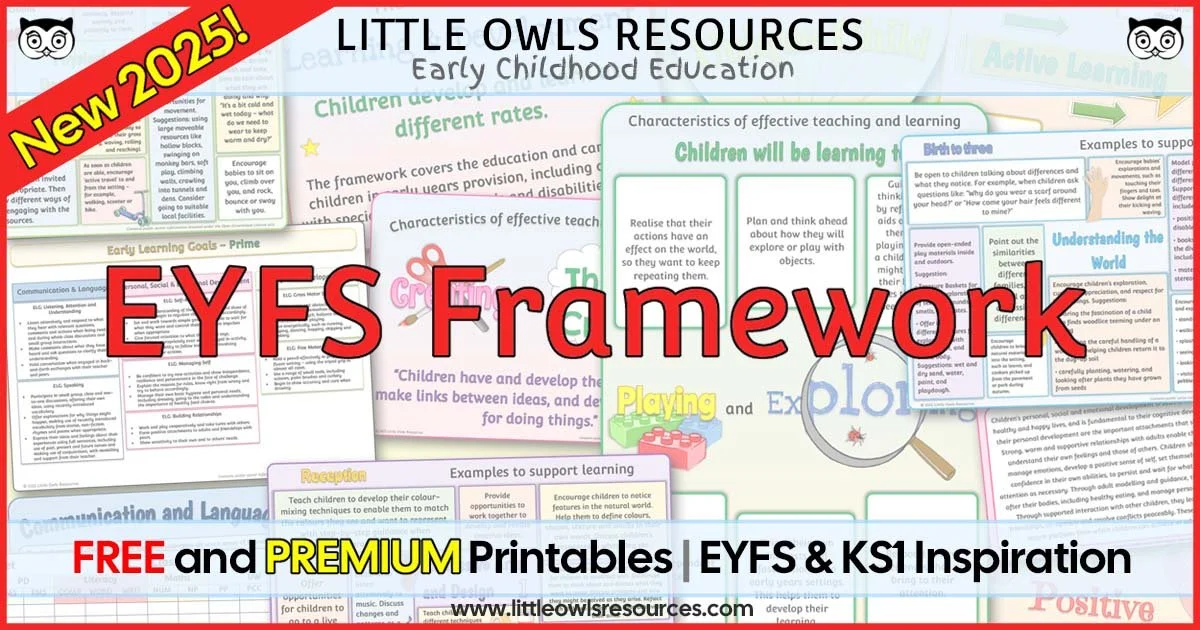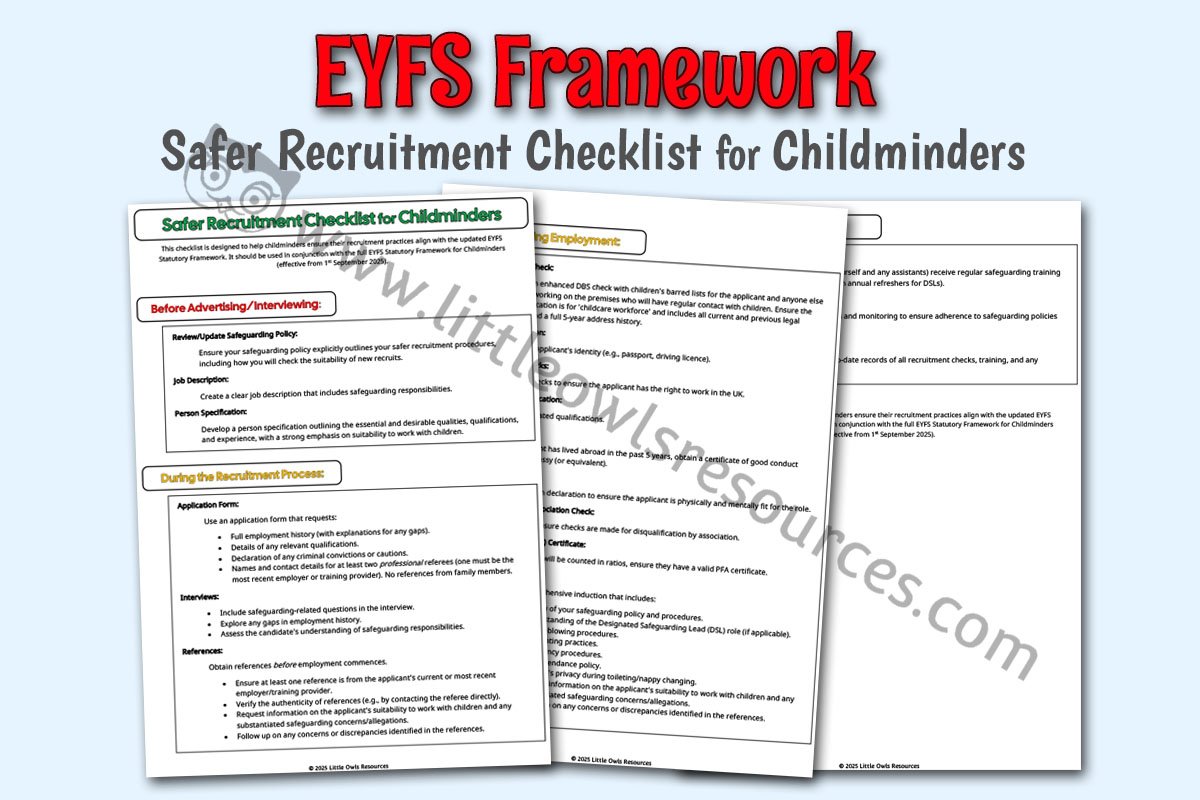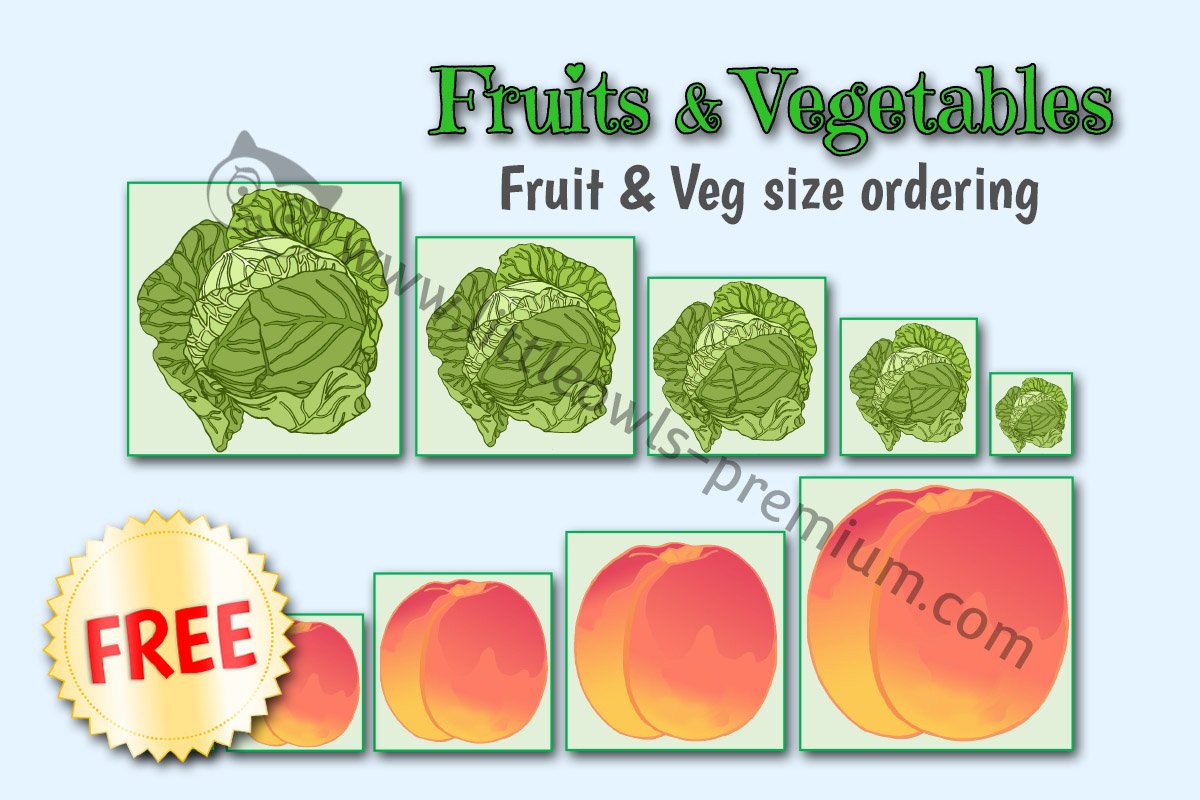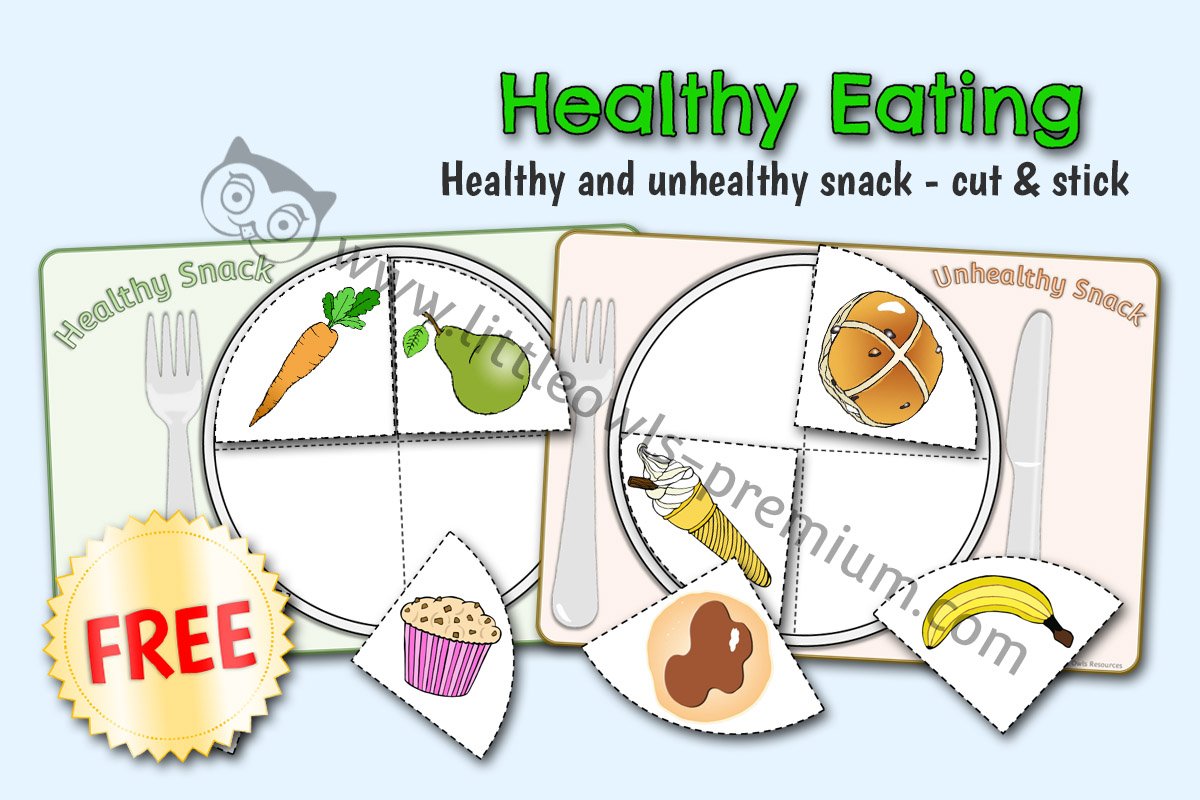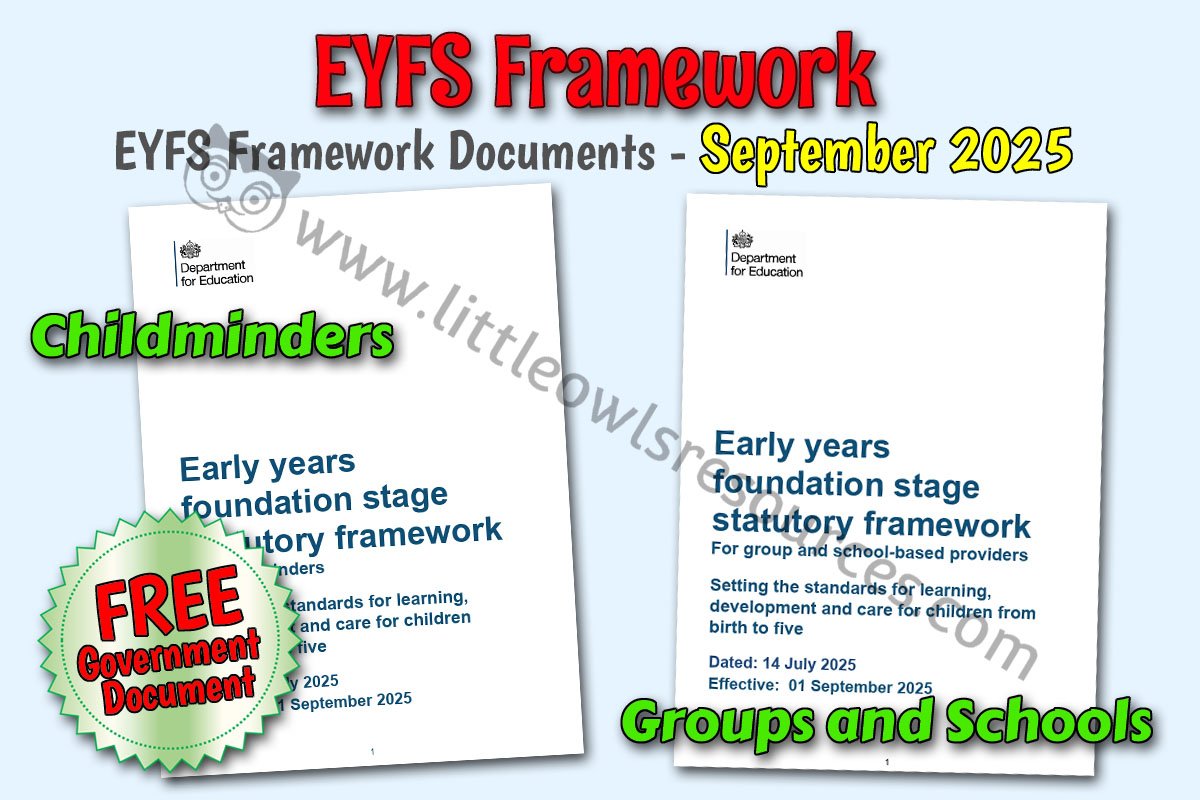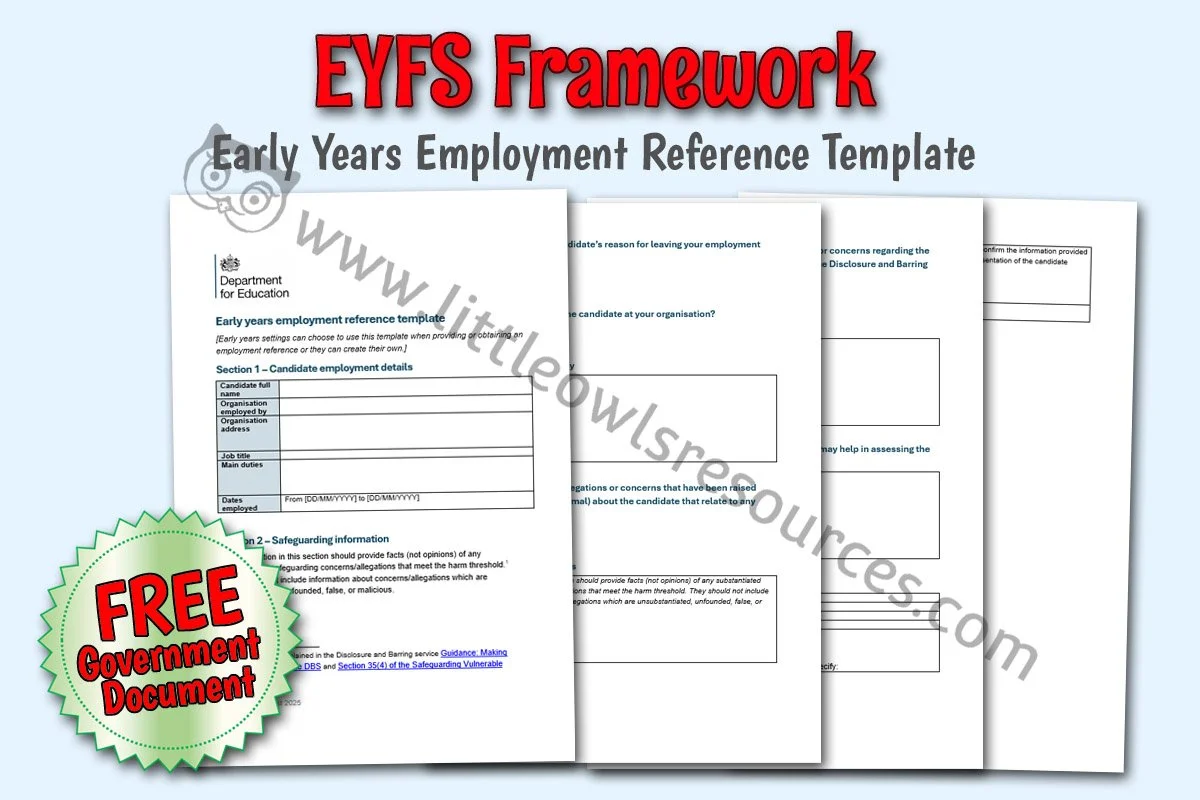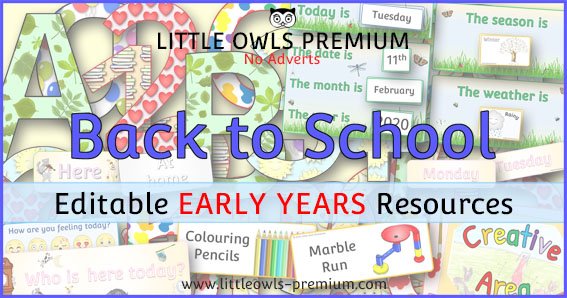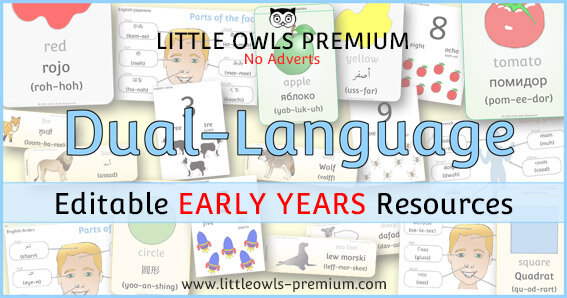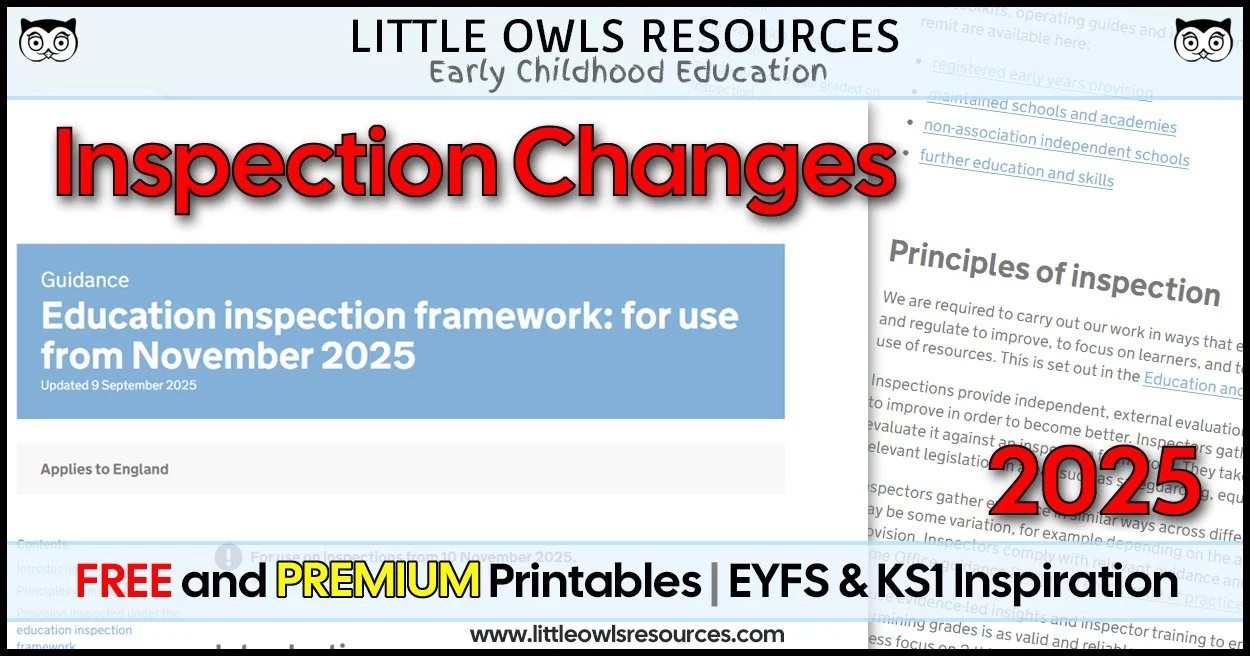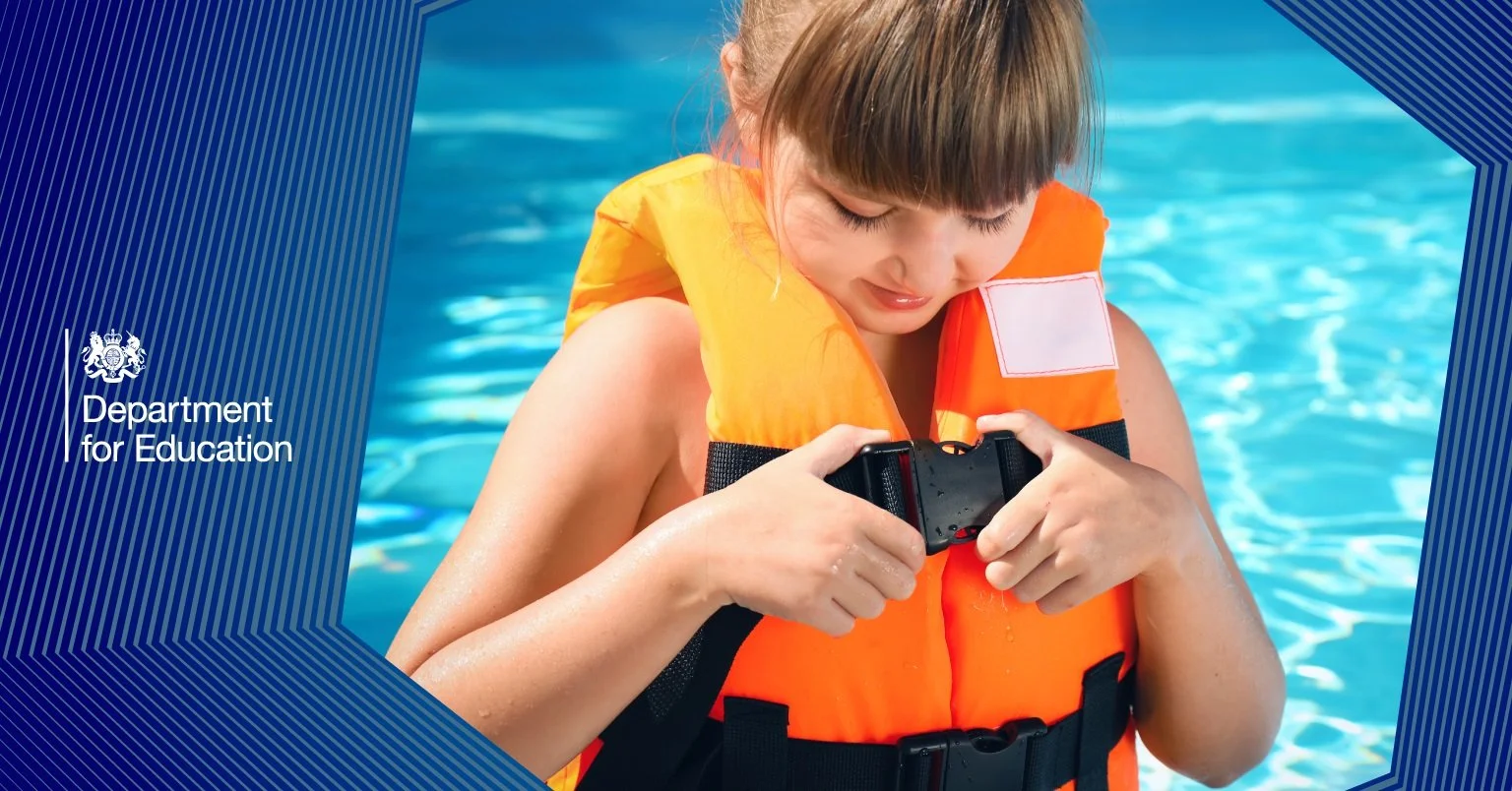New 2025 EYFS Statutory Framework for Childminders | What You Need to Know
[Download the Revised 2025 Early Years Foundation Stage Statutory Framework Documents.]
(Document: Department for Education / Open Government Licence v3.0)
Hello, wonderful Childminders!
As dedicated early years professionals, you play a vital role in nurturing the growth and development of our youngest learners. Keeping up-to-date with the latest guidelines is crucial, and today, July 14, 2025, marks the publication of the newest version of the EYFS Statutory Framework for childminders, coming into effect on September 1, 2025.
These updates reflect an ongoing commitment to ensuring the highest standards of safety and well-being for all children in early years settings. While the core principles of the EYFS remain the same – promoting learning and development, and keeping children healthy and safe – the new framework introduces some important enhancements, particularly in the area of safeguarding.
Let's dive into what's new and how it might impact your valuable work.
Highlighting the Changes: A Focus on Enhanced Safeguarding
The most significant changes in this new framework revolve around strengthening safeguarding measures, aligning them more closely with best practices seen across the wider education sector.
1. Sharpening Safer Recruitment Practices
New Requirement: References Before Employment! This is a key change. You must now obtain and verify references for all new staff members (including any assistants you employ) before they start working with children. This ensures a thorough check on suitability from the outset.
Policy Update: Safeguarding Policies to Include Recruitment Procedures. Your safeguarding policies must now explicitly detail the procedures you follow to ensure only suitable individuals are recruited.
No More Open References: The framework clarifies that open references or those written by family members are no longer acceptable.
Providing References: You will now also be required to provide references for former staff in a timely manner, including any substantiated safeguarding concerns.
Printable downloads our team at ‘Little Owls Resources’ have recently created or adapted to meet the requirements pertaining to this aspect of the revised 2025 EYFS Framework:
2. The Formalisation of the Designated Safeguarding Lead (DSL) Role
New Terminology: The "lead practitioner" role, which many of you will be familiar with, will now be formally renamed to the "Designated Safeguarding Lead (DSL)". This change standardises terminology with schools and other educational settings.
Mandatory Bi-Annual Training: DSLs will now be required to have updated, mandatory safeguarding training every two years, with an annual refresher where necessary.
Training Criteria Annex: The framework now includes a Safeguarding Training Criteria Annex (Annex C) outlining essential training topics.
Policy Update: Training Delivery. Your safeguarding policies must now detail how safeguarding training is delivered and how practitioners are supported to put their knowledge into practice.
Printable downloads our team at ‘Little Owls Resources’ have recently created or adapted to meet the requirements pertaining to this aspect of the revised 2025 EYFS Framework:
3. Strengthening Child Absence Policies
Prompt Follow-up on Absences: You are now explicitly required to follow up on prolonged or unexplained child absences promptly. This is crucial for early identification of potential safeguarding concerns.
Emergency Contact Details: Providers must hold at least two emergency contact details per child.
Clear Procedures for Non-contact: Your policies should clearly outline procedures for contacting local children's services or the police if concerns arise due to unexplained absences and you are unable to make contact with parents/carers or other emergency contacts.
Printable downloads our team at ‘Little Owls Resources’ have recently created or adapted to meet the requirements pertaining to this aspect of the revised 2025 EYFS Framework:
Our existing Child Record Forms can be used to ensure you capture those essential additional emergency contacts.
4. Mandatory Paediatric First Aid (PFA) for Trainees
Inclusion in Ratios: Early years students, volunteers, and trainees must now hold valid Paediatric First Aid (PFA) training to be included in staff-to-child ratios below their study level. This ensures that even those still learning are equipped to respond to emergencies.
5. Robust Safer Eating Practices
New Dedicated Section: The framework now includes a significant "Safer Eating" section. This is a direct response to tragic incidents and aims to prevent choking and manage allergies more effectively.
Key Requirements for Safer Eating:
Constant Supervision: Children must be in your sight and hearing when eating. You or an assistant must be in the room during all meal and snack times.
Allergy & Intolerance Information: You must obtain and share information about children's dietary requirements, preferences, food allergies, and intolerances before they start with you. This information must be shared with any assistants.
Allergy Action Plans: For children with known allergies, you must have clear allergy action plans developed in conjunction with parents/carers and healthcare professionals where necessary.
Choking Prevention: Emphasis is placed on preparing food suitably to prevent choking and ensuring babies and young children are seated safely (e.g., in highchairs or appropriately sized low chairs) in a designated eating area with minimised distractions.
Nominated Person for Checking Food: You must nominate someone responsible for checking each child's food before it is served to them to ensure it meets their specific dietary needs.
Training on Allergies/Anaphylaxis: You and any assistants must be able to recognise symptoms of allergies and anaphylaxis and know how to treat them, including using an auto-injector if prescribed.
Monitoring During Mealtimes: When possible, you should sit facing the children to effectively monitor for choking (which can be silent) and allergic reactions.
Weaning Guidance: The EYFS now signposts the NHS Start for Life weaning guidance. You should support weaning in stage-appropriate ways, working closely with parents to ensure food is prepared in a suitable way to prevent choking, using textures children have eaten at home.
Printable downloads our team at ‘Little Owls Resources’ have recently created or adapted to meet the requirements pertaining to this aspect of the revised 2025 EYFS Framework:
6. Formalised Nutrition Guidance
Non-Statutory but Important: New non-statutory nutrition guidance will be included. While not legally binding in the same way as the statutory framework, you are expected to follow this guidance unless there is a very good reason not to. Ofsted will consider compliance during inspections.
Additional support material based on this new non-statutory guidance coming soon.
7. Whistleblowing Support
Clearer Procedures: The framework now includes clearer procedures for whistleblowing, aiming to empower staff (and childminders working with assistants) to report concerns without fear of retaliation and outlining the support mechanisms available.
8. Children's Privacy in Toileting and Nappy Changing
Balancing Privacy and Safeguarding: There is now clearer guidance on balancing children's privacy with safeguarding practices during toileting and nappy changing. This emphasises maintaining dignity while ensuring appropriate supervision. For example, using your body to shield a child for privacy whilst still being able to supervise other children in your care.
9. Minor Clarifications and Wording Enhancements
Throughout the document, there are also various minor adjustments to wording, structure, and grammar for improved clarity and consistency.
What This Means for You, the Childminder
While these changes might seem extensive, many childminders already practice these enhanced safeguarding measures as part of their commitment to high-quality care. The new framework formalises these practices, ensuring consistency across the sector.
Here are your key actions moving forward:
Read the New Framework: Download and thoroughly read the new "EYFS statutory framework for childminders (effective from 1 September 2025)" on our website or directly from the GOV.UK website.
Review Your Policies & Procedures: Update your existing safeguarding, recruitment, attendance, and health policies to reflect the new requirements, especially those related to safer recruitment, child absence, safer eating, and the DSL role.
Update Your Training Plan: Ensure your own safeguarding training, and that of any assistants, meets the new criteria and is renewed every two years.
Inform Parents: Communicate any relevant updates to your policies with the parents and carers of the children in your care.
Utilise Resources: Our website is here to support you! Many of our existing resources, such as our Child Record Forms, Risk-Benefit Assessment Forms and Daily Safety Checklists, will be invaluable in adapting to the new requirements.
Remember our Key Person resources, like 'Hi! I'm Your Child's Key Person!' - Template Sheets and Key Children Charts/Posters (Flowers, Balloons, Colours), which reinforce strong relationships, a core part of effective safeguarding.
Our Learning & Development and Assessment tools, like our Observation Sheet and the various Development Matters Support Examples (Birth to 3, 3 and 4 year olds, Reception for Communication and Language, PSED, Physical Development, Literacy, Mathematics, Understanding the World, Expressive Arts and Design), continue to support the holistic development of children.
Our existing Teaching and Learning Characteristics resources and Overarching Principles Display Materials remain central to the EYFS philosophy.
Explore our 'Stay Healthy' menu page (including 'Mental Health', 'Handwashing & Hygiene', 'Emotions and Feelings', 'Exercise', 'Sun Safety' and more!) and our free topics ‘Teeth and Oral Health’ and ‘Food’ for even more resources to promote good health.
For children learning English as an additional language, keep an eye on our developing 'Dual-Language' resources.
And don't forget the importance of outdoor play – our 'Outdoor Area' page is a great resource!
Our resources continually pay mind that children develop and learn at different rates, supporting SEND children, with our 'Picture Communication' resources and 'Autism' hub page.
This new framework is an exciting step forward in ensuring even greater safety and quality in early years provision. By understanding and implementing these changes, you continue to demonstrate your professionalism and unwavering commitment to the children in your care.
We are dedicated to providing you with the resources you need to navigate these changes smoothly. Keep an eye on our website for new and updated printables to support your practice!
FREE Educational Materials we have to support Childminders | EYFS Framework
Free support materials to aid Childminders in implementing the 2025 EYFS Statutory Framework:
Core ‘EYFS Framework’ resources to support Childminders
(Please visit our ‘EYFS Framework’ hub page for our full collection of resources.)
Additional ‘EYFS Framework’ resources for Childminders
Select the buttons below to explore our Little Owls Resources educational materials on the topics below:
Additional EYFS & KS1 Articles
A major overhaul of the national curriculum in England has been announced following the publication of the independent Curriculum and Assessment Review. For those working in the Early Years Foundation Stage (EYFS) and Key Stage 1 (KS1), the changes signal a renewed focus on practical life skills, digital literacy, and enriching learning experiences…
The world of early years education is constantly evolving, and with it, the frameworks that guide and assess our invaluable work. Come November 2025, a significant shift will occur as the new Education Inspection Framework (EIF) comes into effect, bringing with it some crucial changes…
With the new 2025 EYFS Statutory Framework for group and school-based providers coming into effect on 1st September 2025, it's essential to understand the updates to ensure your practice remains compliant, effective…
As dedicated early years professionals, you play a vital role in nurturing the growth and development of our youngest learners. Keeping up-to-date with the latest guidelines is crucial, and today, July 14, 2025…
The Education Secretary is calling on parents to lead by example and make reading a daily habit to help reverse the decline in reading for pleasure, to help give kids the best start in life as part of the…
As we head into summer, it’s especially important that children are prepared with these skills. This year, the Royal Life Saving Society UK's Drowning Prevention Week runs from 14 June to 21…
There are several ways that schools can make changes to keep children safe in hot weather, especially as children are more at risk of becoming ill with heat-related issues than adults…


